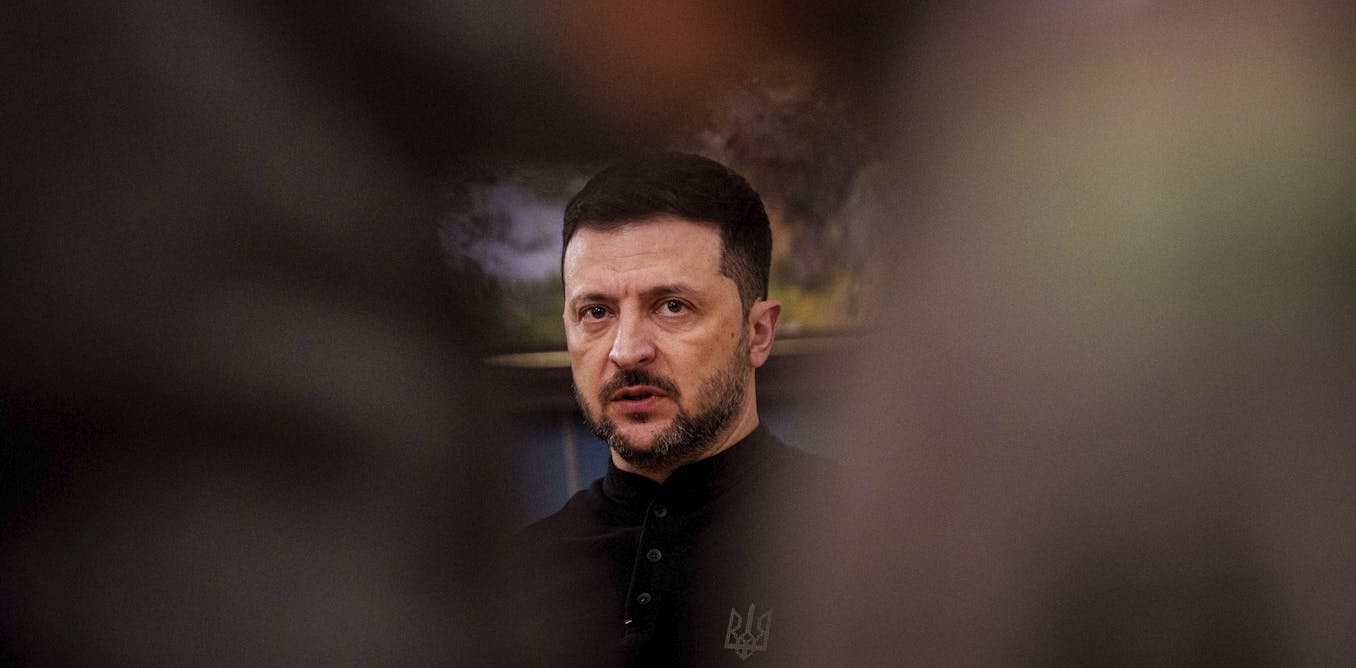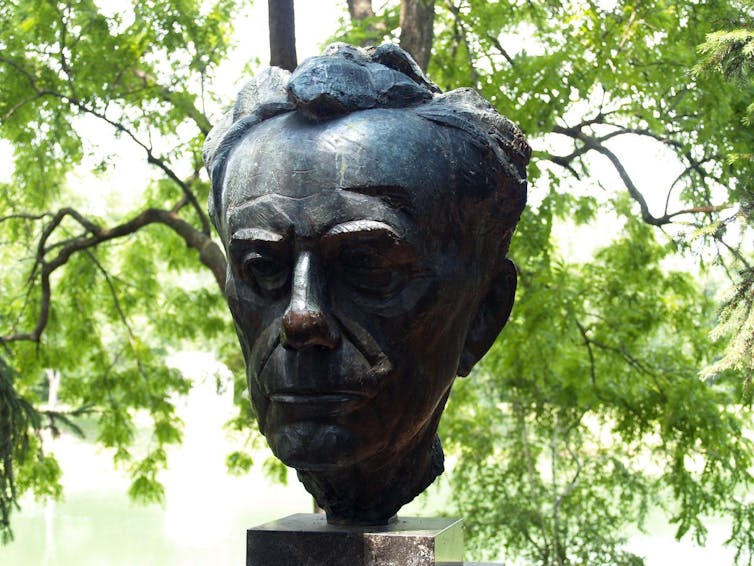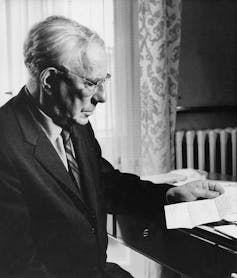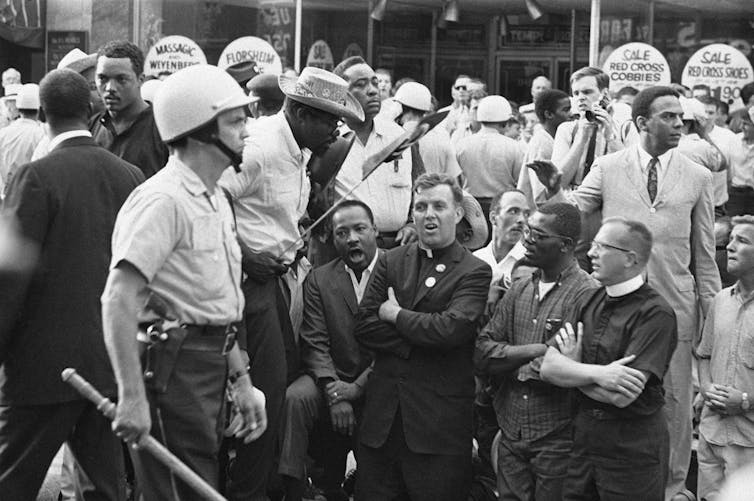
Over the past few weeks, as negotiations for a ceasefire in Ukraine drag on, I’ve thought back to Feb. 28, 2025: the day of Volodymyr Zelenskyy’s heated visit to the Oval Office.
Zelenskyy has called the tone of the meeting “regrettable” as he tries to salvage support for Ukraine. But in some ways, he has stood by his decision to speak up as President Donald Trump and Vice President JD Vance berated his country, calling it ungrateful for foreign assistance. “In that conversation, I was defending the dignity of Ukraine,” he told Time magazine.
Watching Zelenskyy left me thinking about political courage. Philosophers have written about bravery for thousands of years, but what is it?
Plato, for instance, wrote about courage as an important virtue that can assist political leaders. Plato scholar Linda Rabieh argues that courage is the ability to be steadfast in the moment of truth. Angela Hobbs, a British scholar, says that courage might be called “spiritedness”: the ability to act boldly in adverse situations.
Some of my own recent research in philosophy of education has also focused on courage. In particular, I have been interested in Paul Tillich’s notion of the “courage to be,” as well as its implications for politics and education. Tillich was a German philosopher and theologian who left the country after the Nazis rose to power.

More than a mindset
Born in a village in eastern Germany in 1886, Tillich lived in a Europe ravaged by two world wars. As such, he experienced firsthand the fundamental anxiety that many felt during this period of prolonged violence and destruction.
In the early 1930s, Tillich wrote “The Socialist Decision,” which can be interpreted as a challenge to right-wing populist movements. The Nazis banned the book, and he soon immigrated to the United States, where he would spend the rest of his life and write his most important philosophical and theological works.
Tillich’s book “The Courage to Be,” published in 1952, is based on a series of lectures that he delivered at Yale University. Tillich was inspired to address courage, since he viewed this concept as one that integrates theological, sociological and philosophical problems. Moreover, Tillich suggests that this concept was useful for understanding societies’ challenges after World War II.

At its core, the book springs from an attempt to respond to anxiety: people’s anxious search for meaning and security, especially as many people lost faith in the religious traditions that once anchored their sense of purpose and reality. There is courage, Tillich writes, in affirming oneself despite that sense of emptiness, and despite the knowledge that our lives are short and uncertain.
Tillich defines “the courage to be” as “the ethical act in which man affirms his own being in spite of those elements of his existence which conflict with his essential self-affirmation.” In other words, it is not simply an attitude or disposition. The courage to be is a deed – the ability to stay true to oneself.
When it comes to ethics or politics, Tillich’s idea of courage entails the ability to sacrifice things such as pleasure, happiness and, in the most extreme cases, one’s life for some higher cause. Such acts of courage are praiseworthy because they suggest that the most ethically essential parts – the noble aspects – of our being are prevailing over the less essential.
In spite of, a part of
What Tillich calls “courage to be” consists of two indivisible parts or aspects.
The first is what he refers to as “the courage to be in spite of”: courageously choosing to affirm one’s essential being, one’s core values, despite tough and even daunting forces of resistance.
Martin Luther King Jr.’s struggle for civil rights during the 1960s provides a good example of this aspect of the courage to be. Documentary evidence indicates that the FBI tried to destroy his reputation with blackmail and wiretaps, not to mention the close to 30 times he was jailed.

The second aspect Tillich describes in his book is “the courage to be as a part,” to partake in something larger than oneself. Tillich writes that “the self is self only because it has a world, a structured universe, to which it belongs.” The courage to be as a part could mean participating in a political movement, a religious community, a worker strike, or any other initiative that involves people coming together for a common purpose.
For Tillich, these types of courage should not be considered separate qualities but two interrelated aspects of the courage to be.
At Zelenskyy’s meeting in the Oval Office, I believe we witnessed a leader embodying both senses of the courage to be. As a president, Zelenskyy stood up for the right of his country to defend itself in the face of Russia’s assault. He remained steadfast in spite of efforts by Trump and Vance to pressure him to accept an agreement that would not have provided security guarantees for Ukraine.
Yet it seemed to me the plainspoken, animated Zelenskyy also displayed Tillich’s notion of the courage to be as a part. He acted not only as an individual, or a politician, but as a Ukrainian trying to defend his country from an invader − a cause that has inspired protests around the globe.![]()
Mordechai Gordon, Professor of Education, Quinnipiac University
This article is republished from The Conversation under a Creative Commons license.


Leave a Reply